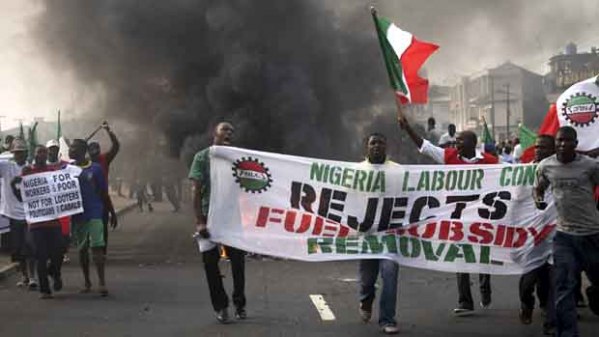Despite its obvious inspiration in the Arab Spring, the global Occupy Movement is most prominent in relatively wealthy countries. This does not mean the movement has not appealed to those in the global south- often Occupy protests have not taken place in these countries because social movements with their own identities were already in progress when people in New York started camping out on Wall Street. Rather than being sneered at however the Occupy Movement has been welcomed as a showing of solidarity. Indian activist Arundati Roy told an audience in New York;
 “The Occupy movement has joined thousands of other resistance movements all over the world in which the poorest of people are standing up and stopping the richest corporations in their tracks. Few of us dreamed that we would see you, the people of the United States on our side, trying to do this in the heart of Empire. I don’t know how to communicate the enormity of what this means.”
“The Occupy movement has joined thousands of other resistance movements all over the world in which the poorest of people are standing up and stopping the richest corporations in their tracks. Few of us dreamed that we would see you, the people of the United States on our side, trying to do this in the heart of Empire. I don’t know how to communicate the enormity of what this means.”
The show of solidarity with activists in the developing and under developed world could be why socialists and labour activists in Nigeria decided to adopt the name ‘Occupy Nigeria’ for the protests they began in January this year.
Background
There are many reasons for Nigerians to protest. Despite being one of the worlds biggest oil exporters (the largest in Africa) much of the population lives on less than US$2 a day. Corruption is rife in the government, infrastructure is badly maintained and food prices are on the rise. Despite all this, mass protests were not expected by many commentators. “even though Nigeria is just a few hours flight from Egypt or Libya, no one believed for a moment that the winds of change would reach Africa’s most populous nation.” wrote Michael Bociurkiw, a Canadian journalists who was in Nigeria during the Arab Spring.
That all changed when the Nigerian government announced on January 1st that it was ending a fuel subsidy resulting in a doubling of fuel and transport prices. The result of this was that many Nigerians could not afford to get to work, or power the generators that are relied on because of a blackout prone electricity system, The ending of subsidized fuel was the spark that set things aflame .
Protests and general strike
Following the announcement protesters shut down petrol stations and blockaded highways. Nigerias union movement called for an indefinite general strike on January 9th. Chris Uyot of the Nigeria Labour Congress told the BBC “We have the total backing of all Nigerian workers on this strike and mass protest”. Thousands gathered daily in Gani Fawehinmi Park in Lagos. The gathering in the park featured speeches by labour leaders and civil society activists, as well as, artists’ performances.
After a week the general strike achieved a partial victory, with president President Goodluck Jonathan announcing a cut in fuel prices, although it fell short of the previous subsidy.

The role of imperialism
The reason behind the ending of fuel subsidies was repaying public debt. Christine Lagarde, head of the International Monetary Fund, visited Nigeria in December and around the same time the World Bank sent its executive director Nguzi Okonjko-Iwela to take over as the country’s finance minister. She was also made co-ordinating minister of the economy, a portfolio created especially for her.
Nigeria has borrowed vast amounts of money to fund the infrastructure required to obtain and export its oil reserves, yet it sees very little of the wealth the stems from the oil industry. Much of the media converge has pointed out the cost the general strike has had to the economy- estimates range in the billions- but rarely is it noted that the average Nigerian hasn’t missed out on any of this money, instead the ones missing out are Shell, Chevron, Agip and Total.
Further reading: Occupy Nigeria Takes On Nigeria’s Occupiers

Just another WordPress site